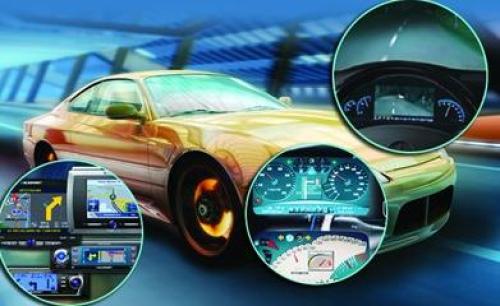With the rapid development of automotive electronics, global automotive manufacturers have set off a wave of smart cars, which has attracted semiconductor manufacturers to fully expand the lineup of automotive components; among them, new business opportunities arising from the transfer of operations from China's Beidou and European Galileo dealers. The rapid increase in demand for multi-satellite GNSS has prompted wafer vendors to expand their product lineup. Mini Air Compressor,Best Air Compressor,Gas Air Compressor,Industrial Air Compressor Taian Longye Import And Export Trade Co.,ltd , https://www.longyedrillingrig.com
Edoardo Merli, Director of Market and Application Department of Automotive Products Group (APG) in Greater China and South Asia, STMicroelectronics (STG), said that GNSS positioning chips have caught up with the trend of connected car design and shipments in the global automotive market are positive. Rapid growth has become an important revenue growth momentum for automotive electronics semiconductors. With the Chinese mainland Beidou satellite commercialized at the end of 2013, and the EU Galileo satellite is also planned to expand the commercial transfer from 2014 to 2015, the depot has also begun to seek solutions that can support the new satellite system, and is expected to set off a wave of GNSS wafer purchase opportunities. .
In fact, most of the existing GNSS chips only support North American Global Positioning Satellite (GPS) and Russian GLONASS. However, the coverage of these two satellite systems on European and Asia-Pacific regions is insufficient, affecting the positioning accuracy of on-board car navigation systems. . As a result, the use of satellites in Europe and Mainland China has significant implications for local depots and even telecom companies. It will help related companies improve their navigation experience, and it expects to introduce more machine-to-machine (M2M) applications and appropriateness. Services (LBS) create new business opportunities.
Considering the development potential of the multi-satellite GNSS market, Broadcom has been the first to publish in late 2013 compatibility with China's Beidou, North America Global Positioning System (GPS), European Galileo, Russian GLONASS and Japan's Quasi-zenith Satellite System (QZSS). GNSS receiver single chip.
Do not let Broadcom specialize in the United States, STMicroelectronics also in early 2014 to follow up the launch of the new multi-satellite GNSS wafer - TeseoIII, actively expand the card slot. Morley emphasized that the wafer can not only track the satellite signals of various countries at the same time, but also combine exclusive Dead Reckoning and sensor technology to provide an assisted navigation solution when the GNSS reception is poor and the system will be positioned. The accuracy pushes up to a higher level.
Fabrice Guerrier, marketing manager of STMicroelectronics' APG car audio and telematics processor, added that TeseoIII has already passed field tests from the European Space Agency and official Chinese companies, respectively, and has begun sampling; its integrated radio frequency (RF), digital controller And flash memory, which greatly enhances the advantages of peripheral component integration, will help vehicle manufacturers and Tier 1 suppliers reduce BOM billing costs while taking into account the effectiveness.
In addition to Broadcom and STMicroelectronics, Qualcomm, MediaTek, Cambridge Wireless Semiconductor (CSR) and mainland China IC design companies are also actively initiating multi-satellite GNSS chip designs and are expected to unveil new products this year. Prototype.
Semiconductor manufacturers advance into the automotive electronics market
